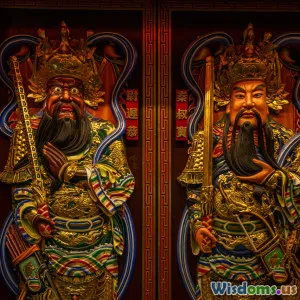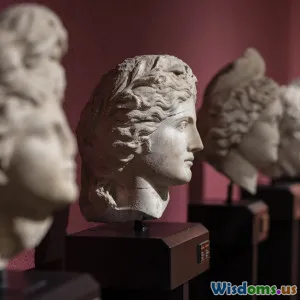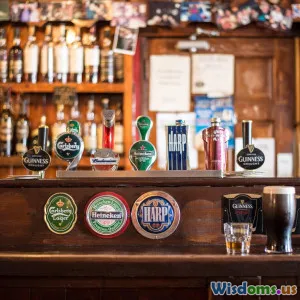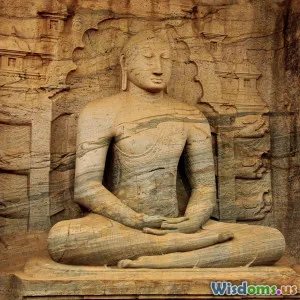
Lessons from Ancient Myths for Today
8 min read Explore timeless lessons from ancient myths that offer wisdom and guidance in modern life challenges. (0 Reviews)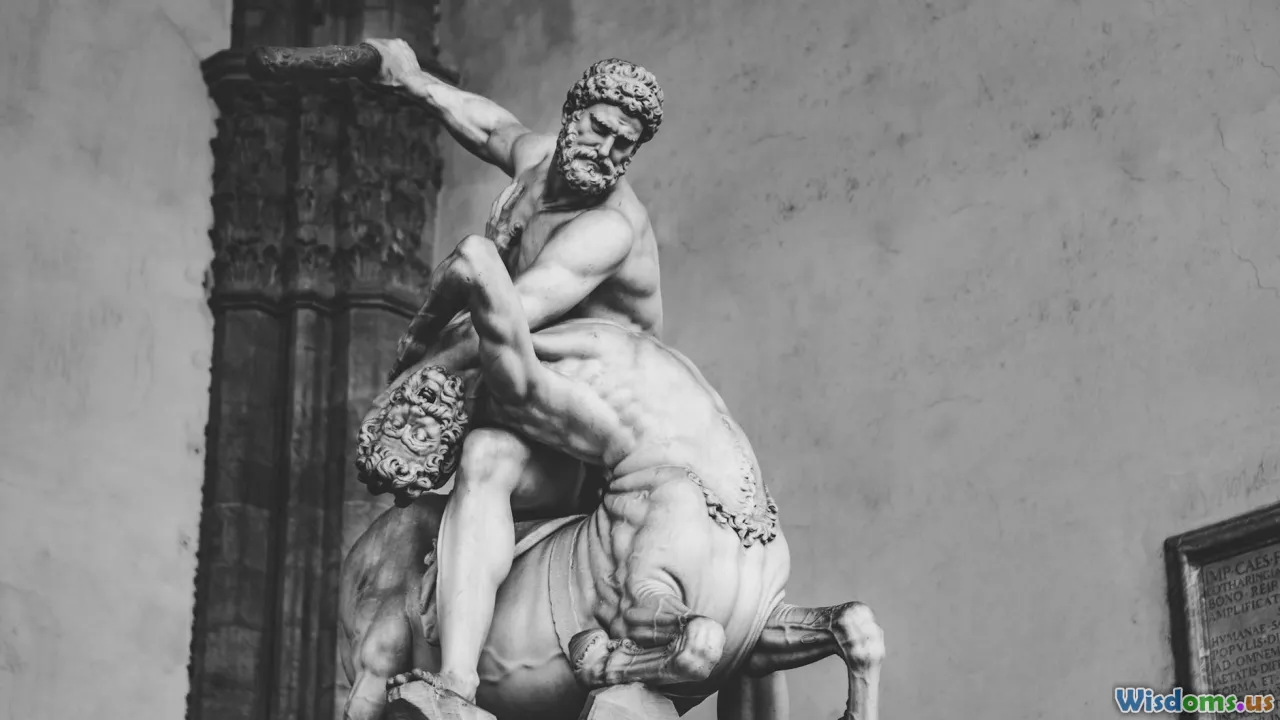
Lessons from Ancient Myths for Today
Introduction: The Enduring Power of Myth
From towering Greek temples to the remote village firesides, myths have been humanity's oldest storytellers. These ancient tales are more than just fanciful narratives; they have functioned as vessels of wisdom, warning, and cultural values for millennia. In a world awash with technology and rapid change, these stories may seem relics of a simpler time. Yet, the lessons they impart — about resilience, morality, ambition, and human nature — remain profoundly relevant. Why do these myths still capture our imagination, and how can their insights guide us today?
This article traverses the realms of ancient mythology to extract actionable lessons, illustrating how the forgotten gods and heroic quests can illuminate modern challenges and inspire better decision-making.
The Ethical Compass: Morality in Myths
Greek Myths and the Pitfalls of Hubris
Greek mythology famously dramatizes hubris — excessive pride or defiance toward the gods — as a fatal flaw. Take the story of Icarus: he ignored warnings and flew too close to the sun, leading to his downfall. This allegory serves as a timeless warning against reckless ambition and arrogance. In contemporary terms, hubris can be seen in businesses or leaders who overreach without regard for consequences.
Modern psychology often references the “Icarus effect” when discussing behavioral overconfidence. A Harvard Business Review article notes that unchecked hubris ``can lead to poor decision making and downfall'' (HBR, 2018). Thus, Greek myths encourage humility and respect for limits — values indispensable in leadership, innovation, and personal growth.
Norse Myths and the Valorization of Perseverance
Norse mythology imbues the concept of wyrd (fate) with inevitability, yet heroes like Sigurd display courage and persistence despite destined outcomes. This acceptance of fate mixed with personal responsibility teaches us resilience in adversity.
In modern psychology, resilience is a critical attribute for mental health and success. The heroic tales encourage embracing hardship as a pathway to greater wisdom — a lesson mirrored in contemporary cognitive behavioral therapy practices promoting acceptance and action.
Understanding Human Nature Through Myth
The Trickster Archetype: Questioning Norms
Figures like Loki (Norse) or Anansi (West African) introduce complexity into myths by subverting traditional values and norms through cunning and deception. Though mischievous, tricksters highlight ambivalence in human motivations and encourage critical thinking.
In a world of misinformation and complex ethical choices, fostering the ability to question assumptions is invaluable. The trickster myth encourages skepticism and adaptability – traits that nurture innovation and ethical awareness.
The Hero’s Journey: Universal Growth and Transformation
Joseph Campbell’s seminal concept, the Hero’s Journey, summarizes a mythic narrative arc where an ordinary individual ventures into the unknown, faces trials, and emerges transformed. This pattern holds true across cultures — from Gilgamesh to King Arthur.
This structure resonates strongly with personal development frameworks today. It mirrors real-life challenges: leaving comfort zones, facing fears, and achieving growth. Many life coaches and educators use this archetype as a model to inspire courage and self-discovery.
Myths as Cultural Memory and Social Glue
Myths Preserving Historical Lessons
The Iliad and Odyssey not only entertain but encode Bronze Age geopolitical struggles and societal values in poetic form, preserving history where written records were scarce. Similarly, Aboriginal Australian Dreamtime stories sustain ecological knowledge vital to land management.
Current efforts in indigenous and cultural preservation highlight myths’ importance for identity and environmental stewardship. According to UNESCO, intangible cultural heritage, including myths, strengthens social cohesion and sustainable development.
Myths as Tools for Conflict Resolution
Many ancient myths serve as cautionary tales warning against excessive violence and promoting reconciliation.
For example, the tale of Romulus and Remus encompasses both fratricidal conflict and the founding of Rome, emphasizing themes of unity emerging from discord. Modern diplomatic strategies sometimes draw on mythic narratives to frame negotiations, promoting empathy and shared heritage.
Applying Ancient Wisdom in Modern Life
Decision Making and Ethical Judgments
In both corporate and personal contexts, reflecting on mythic lessons about virtue, moderation, and consequence can sharpen ethical awareness and long-term strategic thinking.
Consider the myth of King Midas: his greed led to losing what he treasured most. Such stories warn against short-sighted profiteering, urging consideration of broader impacts — a principle now integral in sustainable business practices.
Personal Resilience and Growth
Modern stressors are often intangible yet intense. Myths stress enduring hardship with dignity and learning from failures. For example, the tale of Prometheus symbolizes sacrifice for the greater good and unyielding hope, illustrating how struggles can catalyze progress.
Mindfulness practices and therapy frequently incorporate these symbolic narratives to help patients reframe adversity and foster inner strength.
Cultural Literacy and Creativity
Studying myths enhances cultural competence and creativity by connecting us to a shared human experience.
Artists, writers, and filmmakers continuously reinvent mythic themes. The Marvel Universe’s use of Norse gods and the matrix of Greek dramatic elements in modern literature showcase mythology’s imprint on contemporary storytelling, encouraging innovation built on ancient foundations.
Conclusion: Embracing the Mythic Lens
Ancient myths are not just relics to admire but dynamic templates reflecting human psychology, societal values, and ethical dilemmas. Their perennial relevance lies in their ability to convey complex truths through engaging narratives — truths that remain applicable regardless of time or culture.
By revisiting these captivating chronicles with an open mind, modern individuals can draw practical insights on humility, resilience, ethical leadership, and growth. Incorporating mythic wisdom into daily life is a gateway to deeper self-awareness and a more thoughtful engagement with the world.
In essence, ancient myths embody humanity’s collective wisdom — a resource waiting to be explored anew in the digital age. They invite us all to become heroes of our own stories, armed with the timeless lessons of gods and mortals who came before us.
References:
- Harvard Business Review, “The Dangers of Hubris,” 2018.
- UNESCO Intangible Cultural Heritage, 2023.
- Campbell, Joseph. The Hero with a Thousand Faces, 1949.
- APA Journal of Psychology, on resilience and cognitive therapy, 2020.
Rate the Post
User Reviews
Popular Posts

















